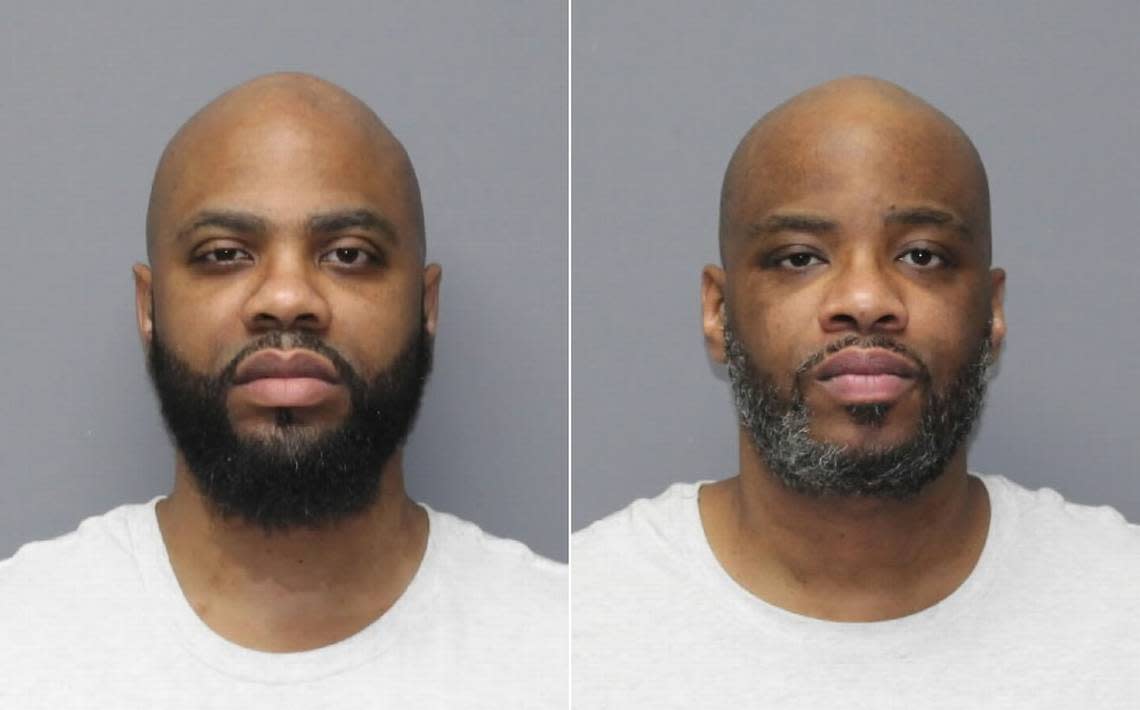U.S. Supreme Court won’t hear 2nd appeal from KS brothers on death row for Wichita murders

The nation’s highest court has refused to hear a second appeal from death-row inmates Jonathan and Reginald Carr, brothers convicted of capital murder in a brutal December 2000 quadruple slaying that continues to be one of Wichita’s most-notorious crimes.
“Today’s action means the two defendants have exhausted their direct appeals and their convictions and death sentences are considered final, although they still have the ability to file additional lawsuits in state or federal court seeking to prevent their executions, and it is expected they will do so,” outgoing Kansas Attorney General Derek Schmidt said in a news release announcing the U.S. Supreme Court’s decision Monday declining to review a January 2022 state court ruling upholding the Carrs’ death sentences.
The court has twice considered appeals from the Carrs, who were convicted of robbing, sexually assaulting and murdering 29-year-old Aaron Sander, 27-year-old Brad Heyka, 26-year-old Jason Befort and 25-year-old Heather Muller and injuring a fifth victim in an brutal execution-style shooting in a snow-covered soccer field at 29th North and Greenwich. The last time the case went before the Supreme Court, in 2016, it reversed a Kansas Supreme Court ruling that had overturned the Carrs’ death sentences in 2014 because prosecutors tried them together.
Last year, the state supreme court upheld the brothers’ convictions and sentences, saying evidence against them was so overwhelming that jurors would have recommended the death penalty despite errors at their 2002 trial.
Sedgwick County District Attorney Marc Bennett said Monday the survivors and families of the slain victims his office has been in contact with “were pleased” with the Supreme Court’s decision and were “ready for the next step.”
“After 20-some years ... they know that they’re in it for the long haul,” he said in a Monday afternoon Zoom call with reporters.
The U.S. Supreme Court rarely agrees to review cases, hearing an estimated 100 to 150 of the more than 7,000 petitions it receives annually, according to the court’s website.
Monday’s decision doesn’t mean the Carrs will be executed by lethal injection any time soon, though.
The brothers are expected to file additional, “indirect” appeals, which typically look at issues such as whether a defendant received effective representation from their defense attorney at trial and possible misconduct. A successful indirect appeal could result in a new trial but that isn’t common.
Of the nine men currently on death row in Kansas, seven have exhausted their direct appeals and are in various stages of indirect appeals, Schmidt said.
“The slow but steady march toward justice continues,” Schmidt said in the news release.
Bennett said Monday that the public will be notified as “that process unfolds and hearings are set” in the Carr cases. In Kansas, indirect appeals typically begin in the county where a defendant’s trial took place.
He also thanked Schmidt and his office “for their work successfully shepherding these matters through the appellate system,” including handling oral arguments before the U.S. Supreme Court in 2015.
Jonathan Carr, now 42, and Reginald Carr, 45, were in their 20s when authorities say they invaded an east Wichita home on Dec. 15, 2000, where they forced the five people inside have sex, raped the women and took them to withdraw money from ATMs before shooting each in the head as they knelt in the soccer field. One woman survived because her hair clip deflected the bullet; she ran naked through the snow for help and later testified at the brothers’ trial.
The killings were part of a multi-day crime spree where the brothers also carjacked and robbed a 23-year-old man and shot to death 55-year-old Wichita symphony cellist Linda “Ann” Walenta.
The Carrs remain in solitary confinement at the El Dorado Correctional Facility, where they’ve been incarcerated since they were sentenced to death in 2002.
Kansas reinstated capital punishment in the 1990s, more than 20 years after a 1972 U.S. Supreme Court ruling temporarily struck down the death penalty nationwide. The last state executions, by hanging, were in 1965.
